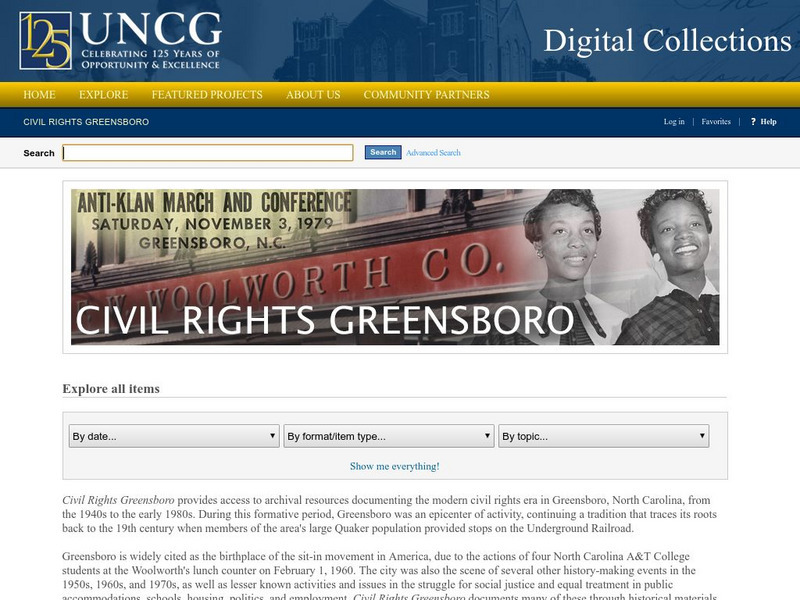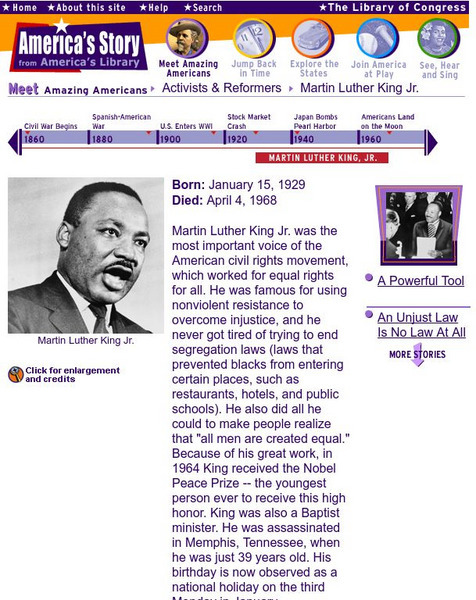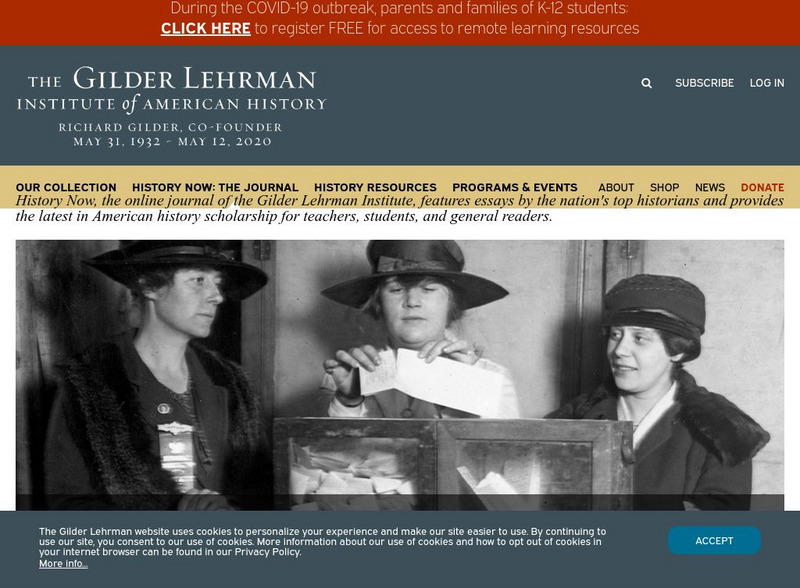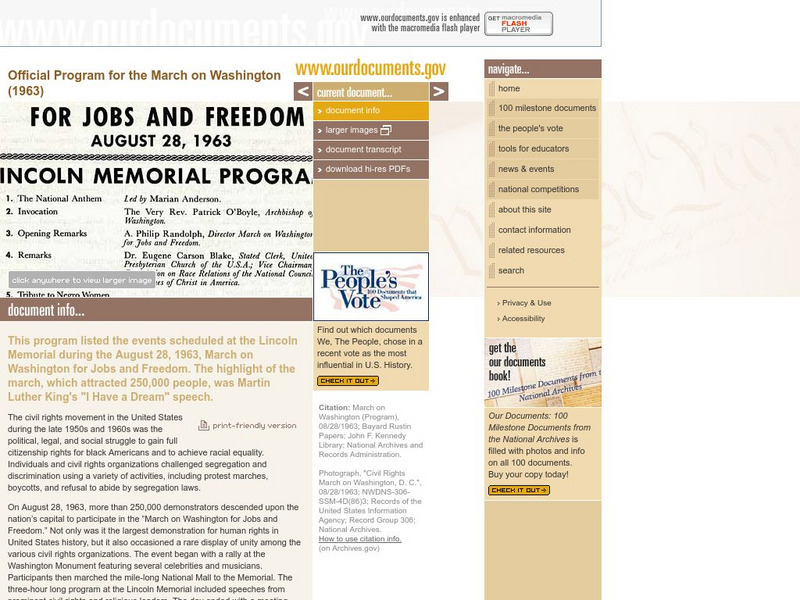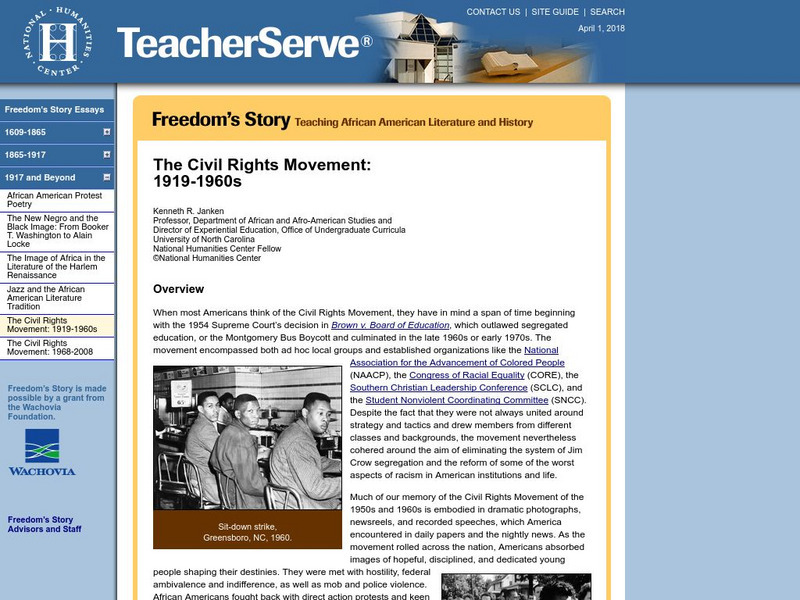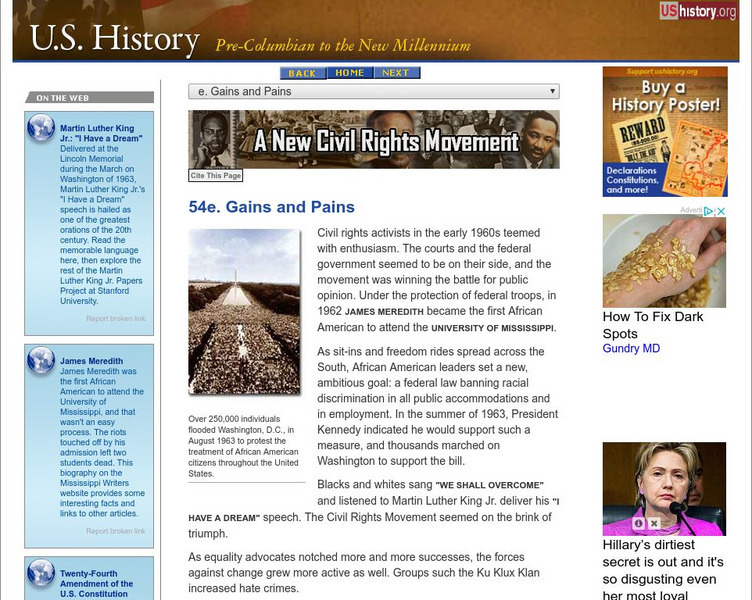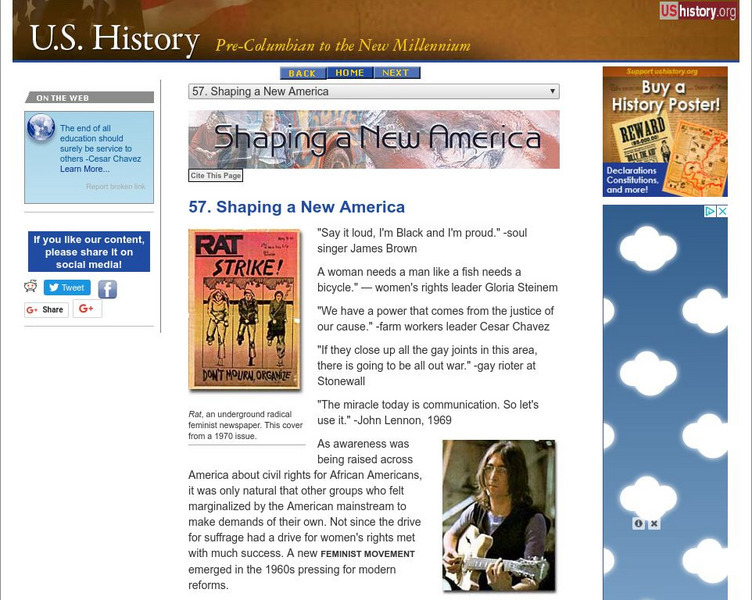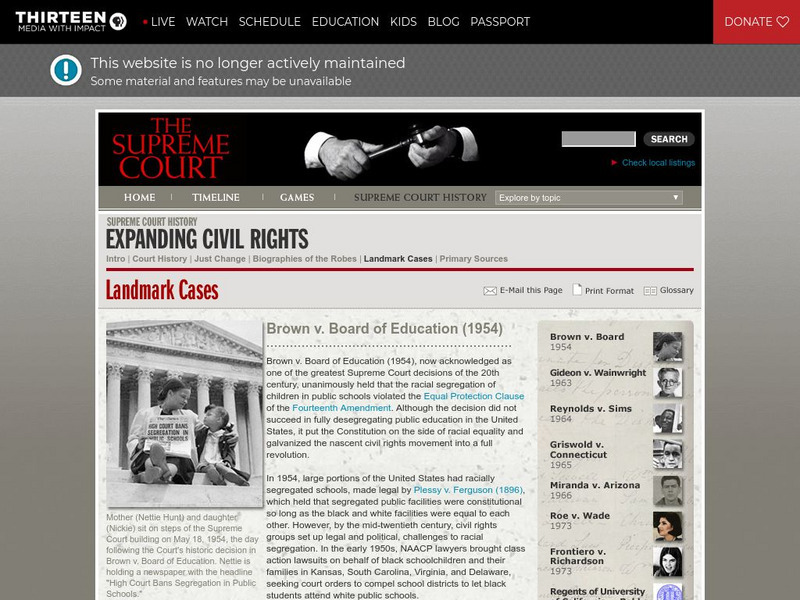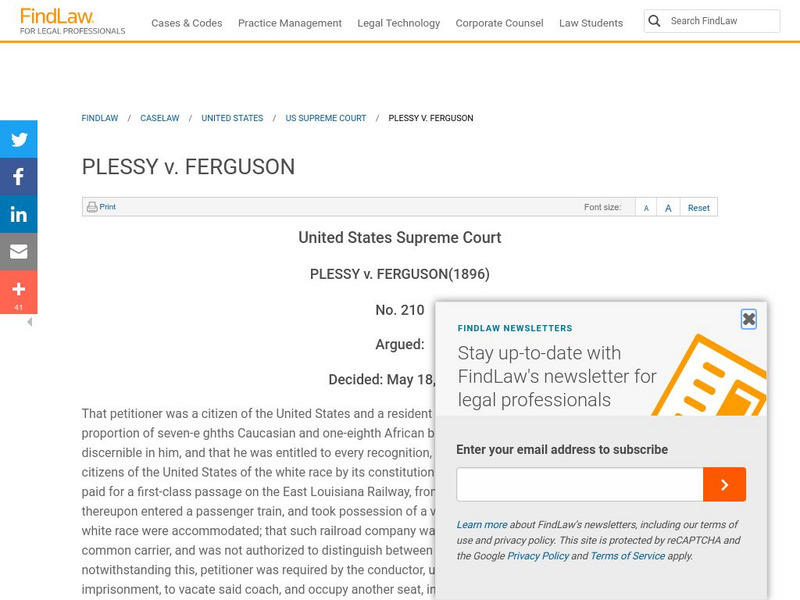Hi, what do you want to do?
Other
Civil Rights Greensboro: Greensboro Sit Ins at Woolworth's
A very detailed description of the sit-ins at the Greensboro, North Carolina, Woolworth's store and other businesses in that city during the first part of 1960. These sit-ins were to call attention to the segregation of public businesses...
PBS
The March on Washington and Its Impact : Lesson Plan
Learn about the social conditions in the United States that led up to the Civil Rights Movement. Also, explore peaceful resistance and the immediate impact of the march.
Library of Congress
Loc: America's Story: Martin Luther King
This article gives a brief overview of the life of civil rights leader Dr. Martin Luther King Jr. while discussing the concept of non-violent resistance.
Gilder Lehrman Institute of American History
Gilder Lehrman Institute: History Now: Martin Luther King, Jr.'s Legacy
[Free Registration/Login Required] This resource provides information about Martin Luther King, Jr.'s impact on American history. In addition, there are links to related topics.
US National Archives
Our Documents: Official Program for March on Washington(1963)
Contains a copy of the original program for the March on Washington that featured Martin Luther King. Provides a summary of the civil rights movement at that time.
Curated OER
National Park Service: People of the Civil Rights Movement
A summary of the people and events that enacted the successful civil rights movement of the 1960s, well-organized and includes many photos.
PBS
Pbs Learning Media: Segregation Ordinances: Birmingham, Al
This document from 1951 spells out Birmingham's segregation ordinances, the laws requiring the separation of the races.
PBS
Pbs Learning Media: Harriet Beecher Stowe: Author and Abolitionist
Through two primary source activities and a short biographical video, students will examine the content and impact of Stowe's Uncle Tom's Cabin.
National Humanities Center
National Humanities Center: Teacher Serve: The Civil Rights Movement: 1919 1960s
Article provides an overview of the Civil Rights Movement in America between 1919 and the 1960s with detailed discussion on racial equality, nonviolence and passive resistance, and segregation.
Independence Hall Association
U.s. History: Gains and Pains
Read about the legal gains made by the civil rights movement, including the Civil Rights Act of 1964, juxtaposed against the real-life actions meant to deny African Americans their right to racial equality not just legally, but...
Black Past
Black Past: Robeson, Paul
This encyclopedia entry tells about Paul Robeson, famous baritone, and his struggles for racial equality. A link to a website for more information on African-Americans is provided.
Independence Hall Association
U.s. History: Shaping a New America
A brief overview of the protest movements in the 1960s and 1970s.
National Endowment for the Humanities
Neh: Edsit Ement: Civil Rights Movement
This lesson plan on the Civil Rights movement is organized into three sections: "Identifying the Need for Change," "Ordinary People in the Civil Rights Movement," and "Historic Places in the Civil Rights Movement."
Other
University System of Georgia: Civil Rights Digital Library
Compilation of primary resources from broadcasters, museums, libraries, and other content repositories, constituting a scholarly collection of primary sources that document aspects of the civil rights movement of the 1950s and 1960s....
South Carolina Educational Television
South Carolina Etv Commission: Celebrate Freedom: Tuskegee Airmen
A multimedia experience about the Tuskegee Airmen, an all African American flying squadron established in Tuskegee, Alabama in 1941. This exhibit celebrates the 60th Anniversary of the struggles and accomplishments of this group of...
Stanford University
Sheg: Reading Like a Historian: Booker T. Washington vs w.e.b. Du Bois
[Free Registration/Login Required] Students read primary source documents to solve a problem surrounding a historical question. This document-based inquiry instructional activity allows students to read a speech of Booker T. Washington's...
PBS
Pbs Learning Media: Primary Source Set: Blackface Minstrelsy in Modern America
This collection uses primary sources to explore blackface minstrelsy in modern America.
PBS
Wnet: Thirteen: Supreme Court: Expanding Civil Rights: Brown v. Board of Education
This is a detailed overview of the landmark Supreme Court case of Brown v. Board of Education which held that the racial segregation of children in public schools violated the Equal Protection Clause of the Fourteenth Amendment. The...
Digital History
Digital History: Plessy v. Ferguson
A very thorough explanation of the famous Supreme Court decision about Plessy v. Ferguson. It upheld the idea of "separate but equal," which was in effect until Brown v Board of Education in 1954. See who opposed the decision, and read...
Thomson Reuters
Find Law: u.s. Supreme Court: Plessy vs. Ferguson
Transcript of the infamous Supreme Court decision that established the constitutionality of the principle of "Separate but equal," public facilities for members of different races. This was eventually overturned by the 1954 and 1955...
Library of Congress
Loc: American Women: Civil Rights Act of 1964
The Civil Rights Act of 1964 was not focused just on racial civil rights, but also gender equity. This site from the Library of Congress deals with how women could use the legislation in lawsuits charging discrimination.
Digital History
Digital History: Freedom Now
When four African American North Carolina Agricultural and Technical College students refused to leave the lunch-counter at the F.W. Woolworth store in Greensboro they started the first non-violent, "sit-in" movement. Although the...
Annenberg Foundation
Annenberg Learner: American Passages: Social Realism: Booker T. Washington
Focused on his personal racial and civil philosophy, Booker T. Washington moved mountains making the public aware of the injustices and inequalities of the late nineteenth and early twentieth centuries. Click "Booker T. Washington...
Black Past
Black Past: Wiley, George Alvin
This concise encyclopedia entry recounts the life of George Alvin Wiley, founder of the civil rights organization, CORE.
Other popular searches
- Gender Racial Equality
- Gender, Racial Equality
- Gender\, Racial Equality
- Gender\\, Racial Equality
- Gender\\\, Racial Equality





